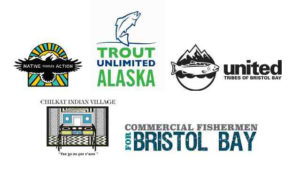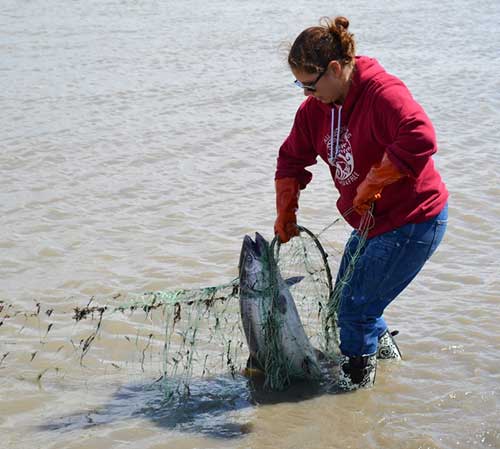 JUNEAU – Tribes, fishermen, and Alaskans share a deep concern over a bill that could take away Alaskans’ ability to protect the pristine waterways that support world-class salmon runs and sustain subsistence ways of life.
JUNEAU – Tribes, fishermen, and Alaskans share a deep concern over a bill that could take away Alaskans’ ability to protect the pristine waterways that support world-class salmon runs and sustain subsistence ways of life.
House Bill 138 politicizes a process that should be driven by science and favors resource development projects over the protection of Alaska’s most unique, ecologically significant water bodies. While the bill is intended to meet federal requirements that direct the State of Alaska to establish a process for nominating and designating “Tier 3” or Outstanding National Resource Waters, it is instead an attempt to silence Alaskans’ voices in protecting the rivers, streams, and waterways that provide the food, culture, recreation, and income they depend upon.
Hundreds of Alaskans have opposed the bill in written comments and public testimony this month, while support has come exclusively from representatives of Alaska’s resource development sector.
Legislators have been rushing this bill in order to make it law. This is disrespectful to Alaska’s people, culture, economies, and chance for a sustainable future – all of which rely upon the protection of our most critical waterways. Multiple nominations for ‘Tier 3’ waters have been sitting in the State of Alaska’s file cabinets for over a decade, and fast-tracking this ill-advised bill is no way to address the proposed protection for our state’s most significant water bodies for generations to come.
The process proposed in HB 138 would take life-long scientific staffers from the Department of Environmental Conservation – the water quality experts – out of the equation in determining which waters should be deemed as Outstanding National Resource Waters. Rather, the bill gives decision-making power to a partisan, appointed commission, and then to the legislature.
[content id=”79272″]
Further, the current bill prevents tribal governments from nominating a water body for a Tier 3 designation, a blatant insult to our state’s First Peoples.
Representatives from organizations opposed to the bill released the following statements:
“The federal Clean Water Act specifically allows Alaskans to protect waters critical to their communities, cultures, and fisheries from pollution under a ‘Tier 3’ or ‘Outstanding National Resource Water’ Designation,” said Konraad Schaad, a Bristol Bay fisherman from Homer. “When a water body is designated as Tier 3 then development activities that occur cannot lower the water quality. This bill, however, takes that process out of the Department of Environmental Conservations’ jurisdiction and puts it into the hands of the legislature where we all know it will become a total political football.”
“Our livelihood as Alaska Native peoples is dependent on healthy waters and lands, and it is our responsibility to ensure that we are keeping these waters healthy, clean and safe. This bill politicizes the process to protect important water bodies and creates divisiveness among our Alaska Native communities that will ripple throughout Alaska,” said Kendra Kloster, Executive Director of Native Peoples Action.
“House Bill 138 will make it more difficult to protect a valuable water resource than it is to contaminate them. I am asking for help to protect our precious waters, save our renewable natural resources by asking our legislators to endorse a science-based decision process for Tier III. Help us protect Alaska’s salmon and wildlife habitat. Our healthy environment sustained ‘Alaskans’ for over ten thousand years. Our food sovereignty as a nation may depend on a no vote of HB 138,” said Jones Hotch, Vice President of Chilkat Indian Village.
“The people of Bristol Bay have been waiting over ten years for adequate review of the nomination of the Koktuli River, currently threatened by the Pebble Mine, to be protected as an Outstanding National Resource Water. UTBB supports a process that prioritizes public engagement and science, while HB 138 instead prioritizes politics and creates an unrealistic threshold for Alaskans to protect their rights to clean water. This bill puts industry and politics above the people of Alaska,” said Lindsay Layland, UTBB Deputy Director.
“This bill works against the best interests of Alaskans,” said Nelli Williams, Director of Trout Unlimited’s Alaska Program. “We need a process that puts input from Alaskans and science first and doesn’t overcomplicate a system that is meant to keep important fishing areas and our clean water healthy and productive.”
###







